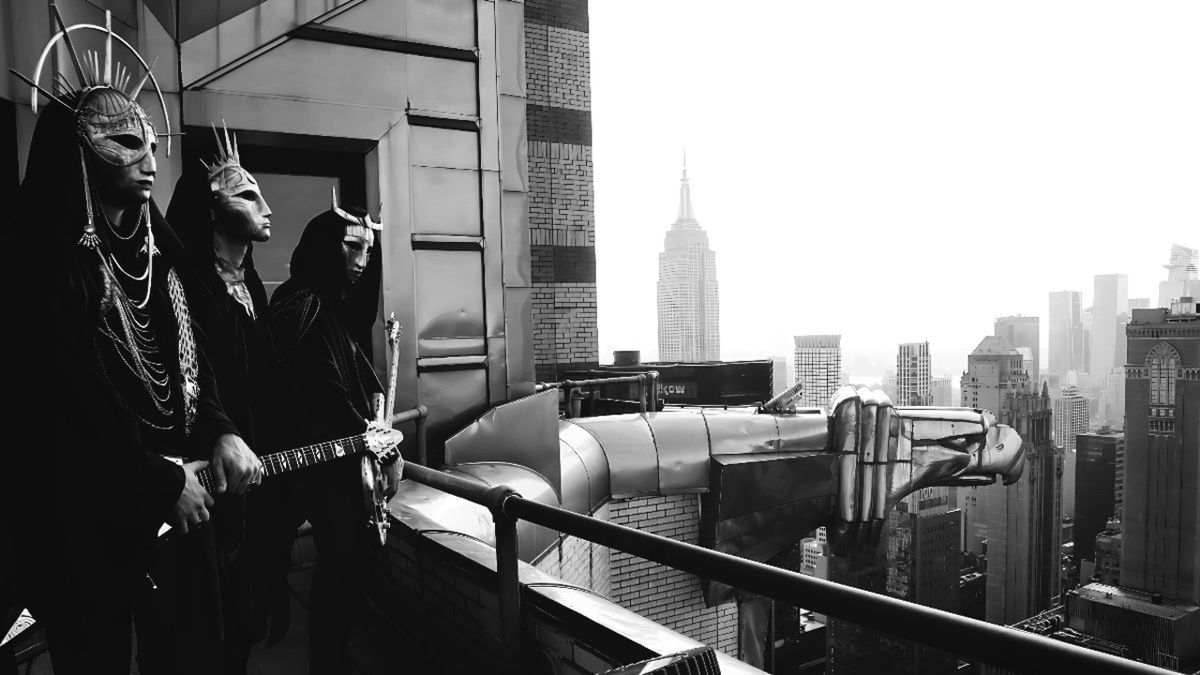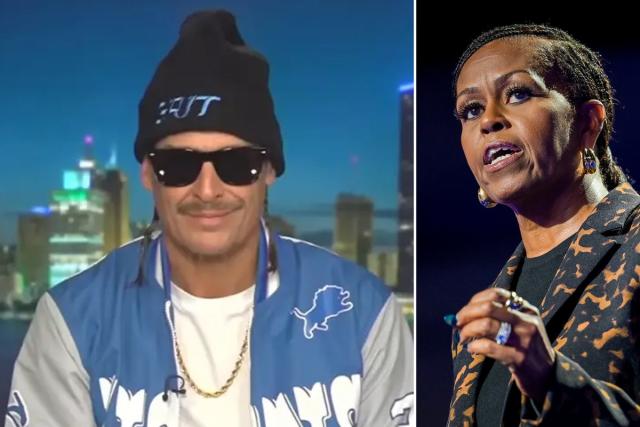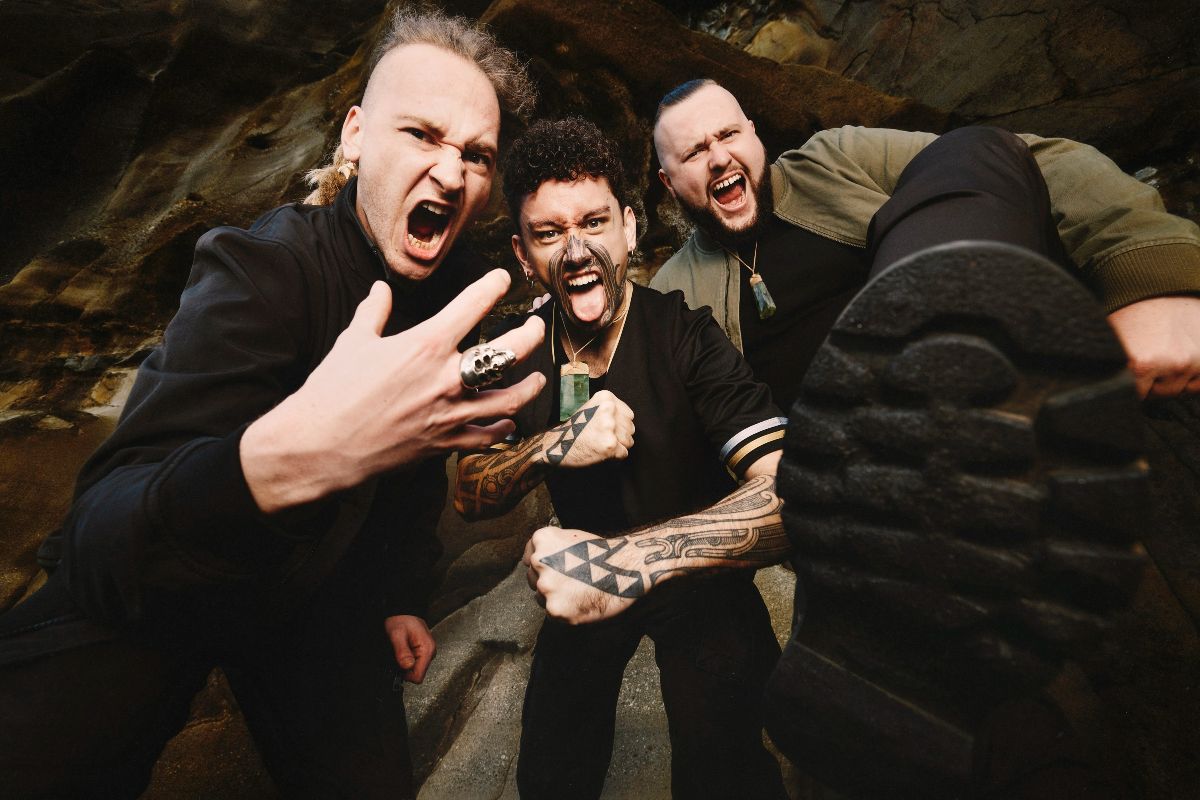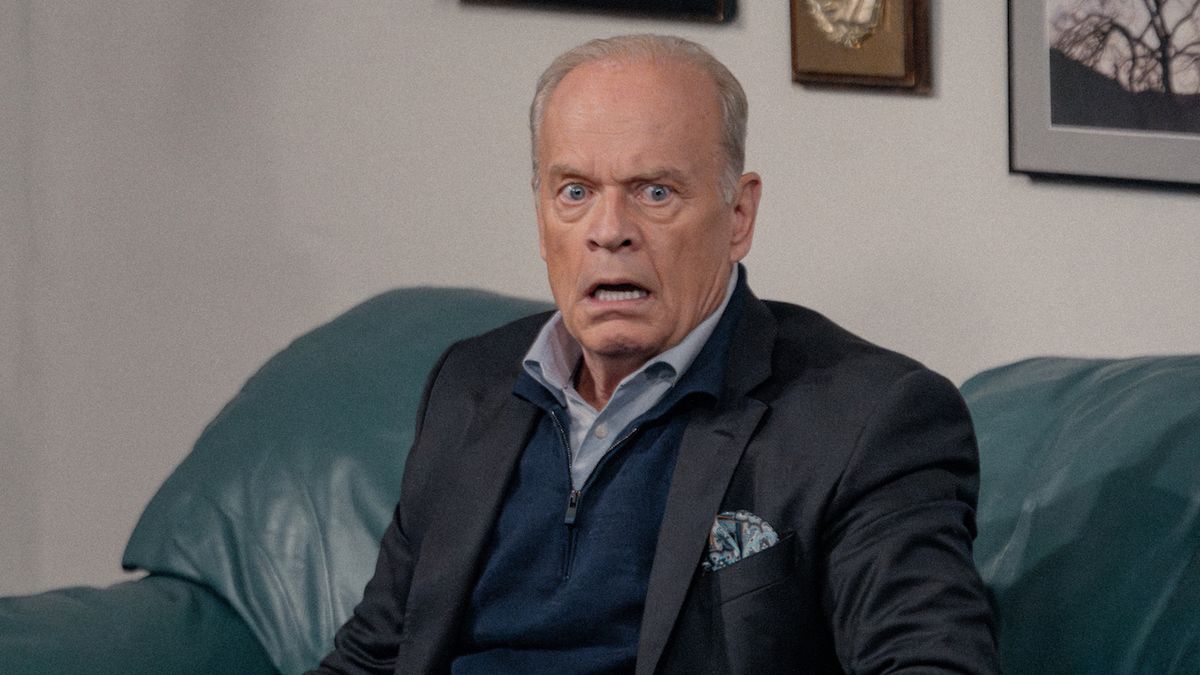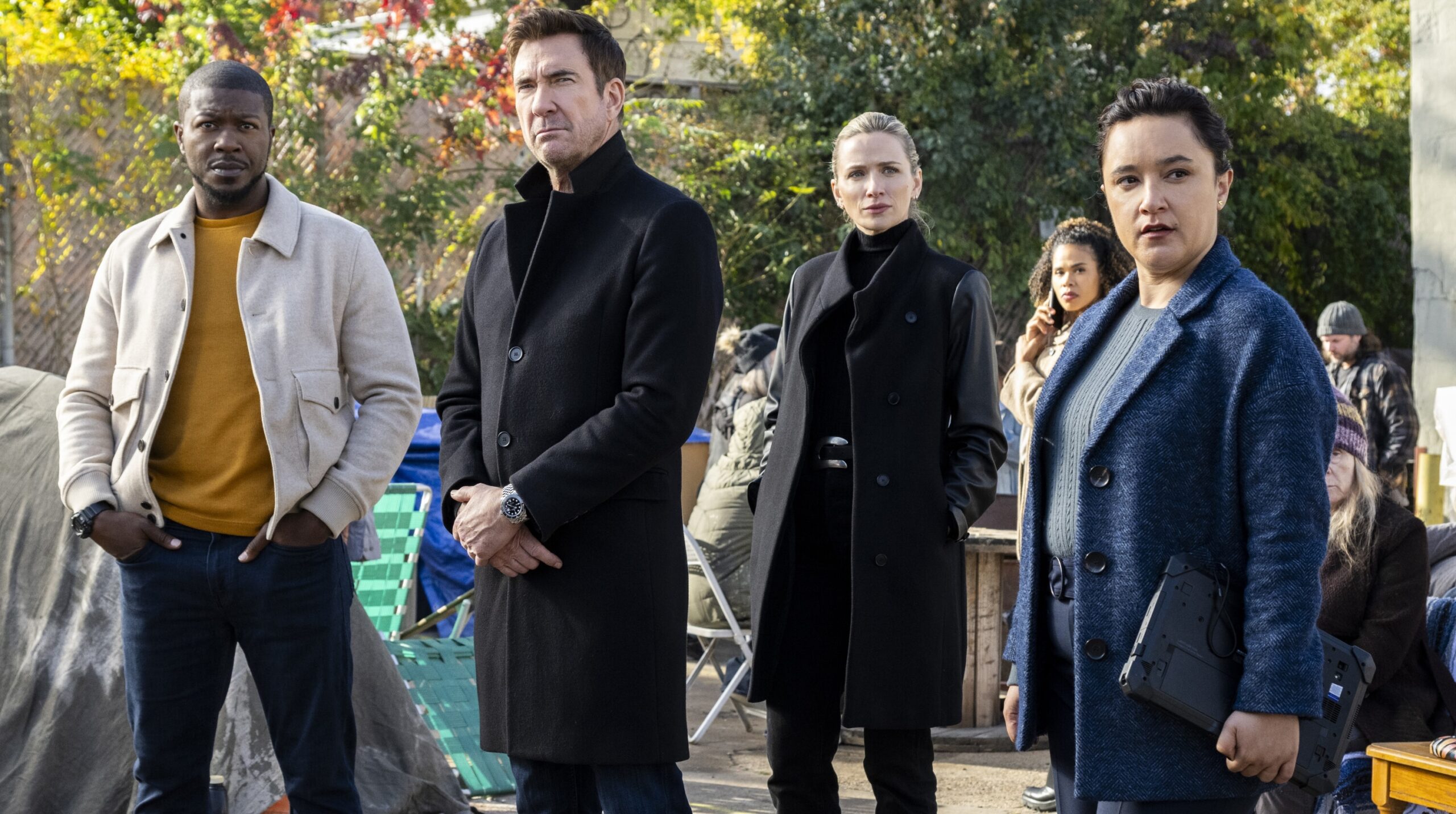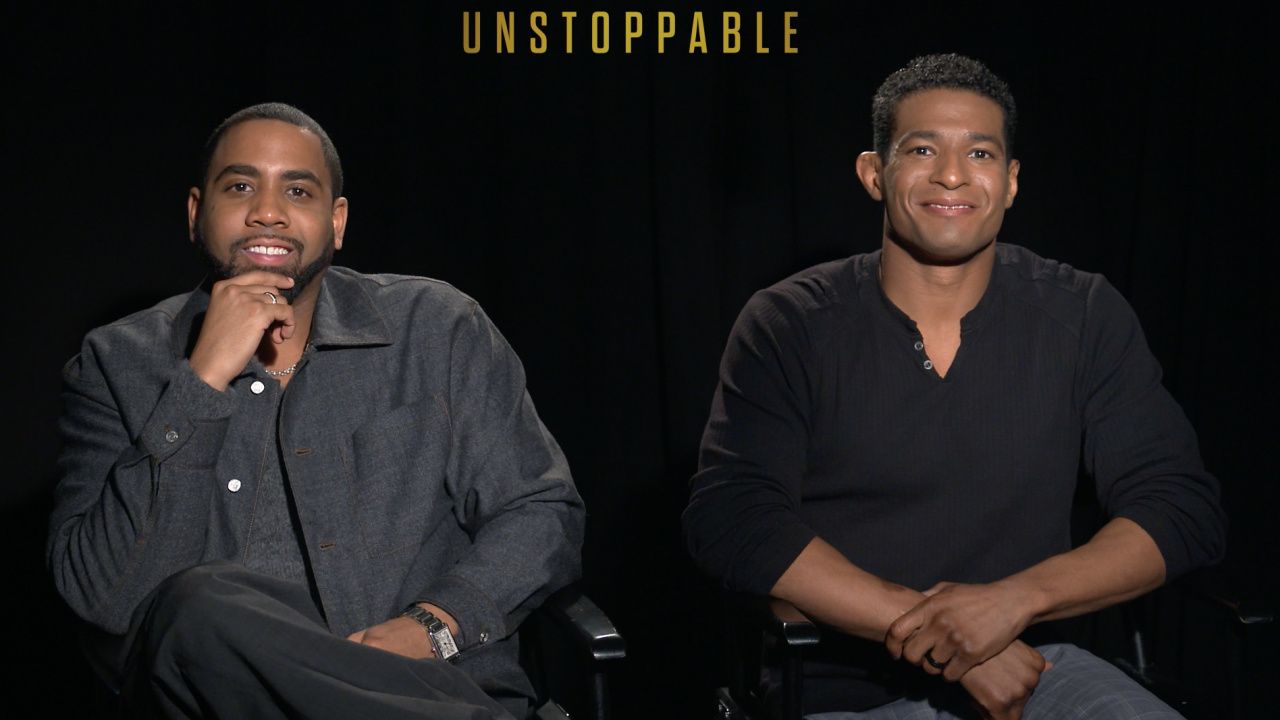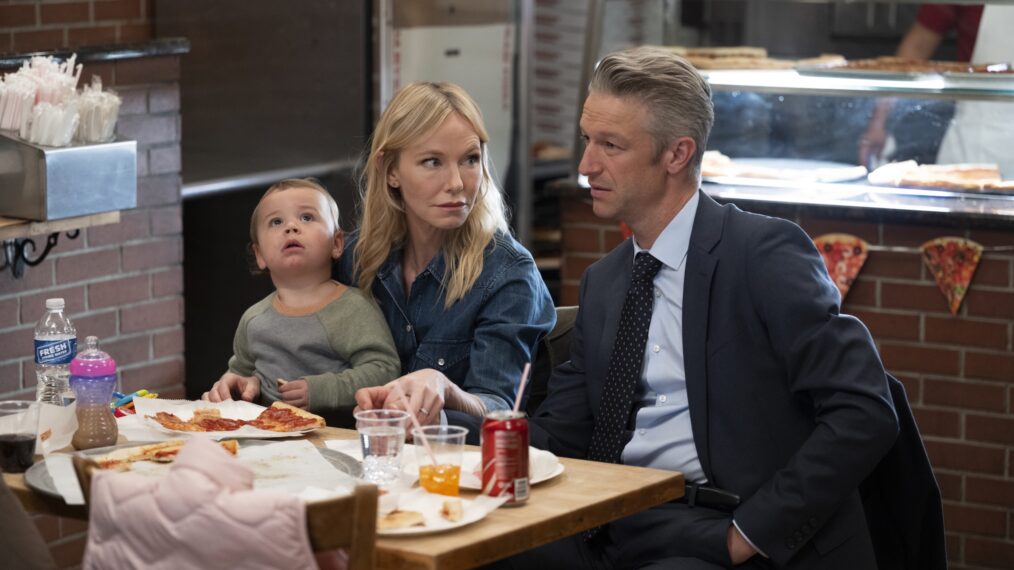As Brandi Carlile watched Elton John: Never Too Late, she was so moved she put pen to paper and was immediately inspired to write a song. The new documentary chronicles the first five years of Elton John’s meteoric rise and the road to his two 1975 Dodger Stadium dates juxtaposed against his final tour concluding with his triumphant return to Los Angeles’ Dodger Stadium in 2022.
The song, “Never Too Late,” performed by John and Carlile, not only became the end title song, but it also became the film’s title. Elton John: Never Too Late is available in select theatres Friday (Nov. 15) and streams on Disney+ starting Dec. 13.
The documentary, helmed by R.J. Cutler and David Furnish, was originally called Farewell Yellow Brick Road, “which was really boring,” John tells Billboard. And then Carlile’s song “just summed up the whole of the documentary perfectly,” he continues. “What she saw she wrote down in a very concise way and summed up the whole of that hour and 40 minutes of time in a lyric, which was incredible.”
“I was moved by what I was watching. I especially loved some of that historical footage, and it just sent me back throughout my childhood,” Carlile says. “I felt like my life admiring Elton just sort of flashed before my eyes. And I came to this conclusion that I had something to say about him and that I wanted him to say it,” she says.
The idea of words about John not written by John coming out of John’s mouth had captivated Carlile from the time she was 11 or so and first heard Captain Fantastic and the Brown Dirt Cowboy, John’s autobiographical 1975 album about his and longtime lyricist Bernie Taupin’s relationship. The album became the first to enter Billboard’s album chart at No. 1.
“I remember looking at the liner notes to Captain Fantastic and seeing this autobiographical rock opera play out that was written by another man about Elton and it was just like the greatest love story I think I’d ever seen,” she says.
“Never Too Late,” credited to Carlile, John, Taupin and producer Andrew Watt, looks at how it’s never too late for new adventures and moving forward.
Carlile’s lyrics stress John’s penchant for not looking back, a trait he talks about admiring in John Lennon when he and the Beatle became friends in the ‘70s. As John remarks in the film, he “loves people who think about tomorrow, not yesterday.”
“I love that Elton doesn’t like to self-reflect,” Carlile says. “He’s too forward thinking. He’s too forward moving. And I’m so inspired by that ruggedness. I don’t think ruggedness is a word that gets associated with Elton John quite enough. He’s really f–king tough and he’s overcome a lot. And I just wanted to sort of take pause and slow it down and write a lyric about that for him to sing because he doesn’t like to say nice stuff about himself.”
Carlile didn’t allow herself to feel intimidated when she handed over the lyrics to John to see if he felt inspired to write music to them. “I think I took a page out of his book and just didn’t look back and I just gave them to him,” she says. “But now, in retrospect, yeah, that should have been f–king terrifying because he’s absolutely a cornerstone of everything that I am, not just musically, but he’s influenced me as an activist and as a mother and a gay person living in the world. I’m so happy that it turned out the way it did.”
The song opens with instantly recognizable piano chords played by John, and he says the music poured out of him. “It was pretty easy to write to because it’s such a great lyric and, obviously, I knew what it was about,” John says. “For her to write something for me and for Bernie—as Brandi says, we’re hand in hand.”
The doc, through animation, recreates the serendipitous moment that John and Taupin connected more than 55 years ago via their publishing company giving John Taupin’s lyrics in an envelope. As well known as the story is, it still seems like some kind of modern miracle to this day—even to John.
“It’s one of the greatest glories of my life and mysteries as how lucky was I to meet Bernie and the happenstance involved,” John says. “I appreciate our relationship and our writing more and more. [Brandy] mentioned the Captain Fantastic album, which I think is probably my best album because it’s about us. It’s so personal. As soon as he gave me the lyrics, it was so easy to write to because it was about us. It’s not something like ‘Tiny Dancer’ or ‘Madman Across the Water’ or ‘Levon’ or something like that. The more I think about and the more I appreciate Bernie’s lyrics, the better it gets and the more I feel so gratified. What a life! What a life we’ve had.”
Taupin and John, as the documentary notes, were extraordinarily prolific in those early years, with John releasing 13 albums between 1970 and 1975, including four in one year.
“It was called adrenaline and gratitude and love for what I was doing. I was a kid in the candy story,” John says. “I was playing America. I was meeting Bob Dylan, Neil Diamond, The Beach Boys, Linda Ronstadt, all these wonderful people. I used to look at their albums on the floor and listen to them on headphones. I’m an unusual guy, I suppose, but when you’ve got lyrics handed to you that are so good and Bernie keeps writing them, we just couldn’t stop. We were like a never-ending faucet.”
As the documentary depicts, though, that life was filled with pain at times. As John’s star was rising, he felt very alone and turned to drugs to help him fill the void when he was off-stage. “My music saved me when I was drug addicted and were going through bad times. I didn’t just shut myself away. When I was sad, I played music and when I was happy, I played music,” John says. “When I was unhappy, I still went on stage and the music for two hours took me out of my sadness. And so, you know, music saved me. By God, did it save me because I didn’t sit at home doing a lot of drugs.”
The documentary contrasts those 1975 Dodger Stadium dates and the emptiness John felt offstage with his 2022 Dodger date and the completeness he felt surrounded by his husband, Furnish, and their two young sons.
These days, two years after his retirement from the road, John says he doesn’t miss the stage at all—in fact, it’s quite the opposite.
“I did a scene in Spinal Tap 2, where we had to drive into a coliseum in New Orleans, and David was with me in the back of the car. And I said, ‘David, I’m having a panic attack. I do not want to go back to doing these things.’ I do the odd charity thing, the odd private show, but I do not want to tour again.”
He also doesn’t have time. John has had two musicals open this fall: The Devil Wears Prada on London’s West End and Tammy Faye on Broadway.
Both John and Carlile had reflections while watching the documentary.
For Carlile, the film provided another life lesson from her pal. “[Elton’s] given me so many things, but the thing that he’s given me that’s most pertinent to this film is that he’s given me an energy to move forward in my life. To ask, ‘What’s now and what’s next’ and to not dwell in the past.”
For John, as he watched archival footage he’d never seen before, including recording Goodbye Yellow Brick Road at the Chateau studio in France, “it reaffirmed the fact that we made good music. The documentary really helped me with my attitude toward my past catalog: it was bloody good.”
John may have been the only one who had any doubts about his early output and Carlile adores that the film compelled John to acknowledge a job well done.
“I love that this documentary is a forced reflection on his achievements and that he has to sit there and watch a story of goodness play out for what he’s done for the world,” she says. “I love that he has to see it. I love that he has to reflect. I love that he’s sitting here saying his music was bloody good. It’s a good thing that this has been [foisted] upon him and it’s an inspiration. It’s why I wrote the song.”



